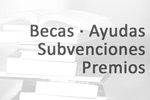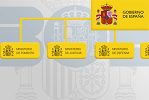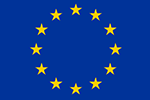Waste management and recycling
Content
What is waste?
Waste is any substance or object that is disposed of by its owner or that its owner intends or is obliged to dispose of.
How is waste classified?
Waste is sorted in accordance with a list of waste harmonised at European level, regulated by Commission Decision 2000/532/EC.![]()
This list is divided into 20 chapters that classify waste based on:
- Its origin (from Chapter 1 to 12 and 18 to 20) or
- Its nature (from Chapter 13 to 17).
Each item of waste is identified by a six-digit code known as the EWC code, marked with an asterisk in the event that it is hazardous waste.
This list may be modified by the EU member states. In the case of Spain, for example, the EWC codes corresponding to waste from electrical and electronic equipment have been separated and must therefore be identified by an eight-digit code ( Royal Decree 110/2015 of 20 February![]() on waste electrical and electronic equipment).
on waste electrical and electronic equipment).
Obligations of original waste producers/owners
Waste producers/owners are obliged to:
- Process the waste themselves;
- Entrust the processing of the waste to a dealer, an establishment or a company, as long as it is registered;
- Or deliver the waste to a public or a private waste collection operator for processing.
Any such operations must be backed up by documentary evidence.
They are also obliged to:
- Identify the waste prior to delivery for waste handling and, in the case of hazardous waste, determine its hazardous properties.
- Provide the authorised waste disposal operators with the necessary information for its appropriate processing and disposal.
- Provide municipalities with information about the waste that is delivered to them if it has special characteristics and may cause problems during its transport, collection, recovery or disposal.
- Immediately report to the competent environmental authorities any disappearance, loss or spilling of hazardous waste, or waste which, due to its nature or quantity, could harm the environment.
In relation to the storage, mixing and labelling of waste on the production site, the waste producer is obliged to:
- Designate and identify an area for storing waste properly that meets the appropriate hygiene and safety conditions while in their possession.
- Do not mix non-hazardous waste if this makes it more difficult for it to be recovered.
- Do not mix or dilute hazardous waste with other categories of hazardous waste or with other waste, substances or materials.
- Package hazardous waste in accordance with Article 35 of Regulation (EC) No 1272/2008 on classification, labelling and packaging of substances and mixtures.

- Label containers or packaging containing hazardous waste in a clear, visible, legible and indelible manner, in at least the official Spanish language of the State.
Producers of hazardous waste must meet the following additional obligations.
- Implement a hazardous waste minimisation plan and report the results every four years to the autonomous community where the production centre is located.
- Take out an insurance policy or financial guarantee covering all liabilities that could arise from their activities, depending on their characteristics, hazardous properties and risk potential. Producers generating less than 10 tonnes of hazardous waste per year are exempt.
Obligations of waste managers
As a general rule, waste operators are obliged:
- To designate and identify an area for storing waste properly that meets the conditions laid down in their permit;
- To provide a financial guarantee in the case of hazardous waste, and in all other cases when required by the rules governing the handling of specific waste or those governing handling operations;
- To take out insurance or provide an equivalent financial guarantee when dealing with dealers, transporters and entities or undertakings carrying out hazardous waste treatment operations and in all other cases where required by the rules governing the handling of specific waste or those governing handling operations, to cover any liabilities arising from such operations;
- Not to mix hazardous waste with other categories of hazardous waste or with other waste, substances or materials. Mixing includes the dilution of hazardous substances.
If operators are required to package and label hazardous waste, they must comply with the same obligations as those laid down for producers in the previous section. In particular, entities or undertakings carrying out waste collection activities on a professional basis must:
- Collect, classify and initially store waste in an authorised installation under the appropriate conditions in accordance with the provisions of their permit and keep documentary evidence of these operations;
- Package and label waste in accordance with the regulations in force for subsequent transport, when the original producer or holder is not obliged to do so;
- Deliver the waste for treatment to authorised entities or undertakings, and keep documentary evidence of this delivery, which must be sent to the original producer or other holder of the waste. This accreditation applies to waste for which local authorities are responsible.
Entities or undertakings that carry ou waste processing activities must:
- Carry out the necessary checks in order to receive the waste and, where appropriate, accept it as agreed in the treatment contract;
- Process the waste in accordance with the terms of their permit and accredit this with documentary evidence;
- Properly manage the waste produced as a result of their activity.
Entities or undertakings that collect or transport waste on a professional basis must:
- Transport, at the request of the transport operator, waste from the original producer or other holder to the treatment facility in compliance with the transport standard requirements, other applicable standards and contractual provisions, and keep documentary evidence of delivery;
- Keep waste separated and identified during transport and, in the case of hazardous waste, ensure it is packaged and labelled in accordance with the legislation in force.
- Deliver the waste for treatment to authorised entities or undertakings and accredit such deliveries with documentation.
Dealers and brokers must comply with what is stated in their activity reports and with the terms and conditions in their contracts.
Dealers must pursue their activity with hazardous and non-hazardous waste that has a positive value and must provide documentary evidence that it complies with this requirement in the corresponding report. They are also obliged to ensure that a complete and appropriate treatment operation is carried out for the waste they buy and to provide documentary evidence to the producer or other original holder of such waste.
Authorisations and notifications of waste production and management activities
-
Permit system
- The autonomous communities are responsible for authorising waste production and handling activities. In particular, a permit must be requested: from the autonomous community where the storage facilities for professional collection and the fixed facilities where waste treatment operations are to be carried out are located. Mobile facilities must be authorised by the autonomous community where the natural or legal person owning the facility has its registered office. The operator managing the facility must give prior notice in each autonomous community where the waste treatment operation is to take place.
- from the autonomous community where the natural or legal persons carrying out professional waste collection operations or waste treatment operations, including waste recovery or disposal operations without a facility, have their registered office. In the latter case, the operator must send a prior notification to the autonomous community where the operation is to be carried out.
Permits will be granted for a maximum period of eight years, after which they will be automatically renewed for successive equivalent periods following a favourable inspection by the competent authorities. Permits granted to facilities subject to Royal Legislative Decree 1/2016 of 16 December, approving the revised text of the Law on Integrated Pollution Prevention and Control, are an exception as they must expire at the same time as the integrated environmental permit.
-
Reporting system
Before starting their activities, a report must be submitted:
- To the autonomous community where the entities or undertakings are located, in the following cases:
- Installation, extension, substantial modification or transfer of industries or activities that generate hazardous waste or that generate more than 1 000 tonnes of non-hazardous waste per year;
- Where activities that are exempt from a permit are carried out, as provided for in Article 34 of Law 7/2022 of 8 April on waste and contaminated soil for a circular economy;

- Waste treatment operations carried out in mobile facilities;
- Waste treatment operations carried out without an associated facility.
- To the autonomous community where their head office is located, in the case of entities or undertakings transporting waste on a professional basis, dealers and brokers.
Undertakings that have obtained a permit to process waste and that generate waste as a consequence of their activity are exempt from submitting a report. Ships that are original waste producers and deliver their waste to port reception facilities are also exempt. However, they will still continue to be considered waste producers for all other purposes regulated by the law.
Permit system
- The autonomous communities are responsible for authorising waste production and handling activities. In particular, a permit must be requested: from the autonomous community where the storage facilities for professional collection and the fixed facilities where waste treatment operations are to be carried out are located. Mobile facilities must be authorised by the autonomous community where the natural or legal person owning the facility has its registered office. The operator managing the facility must give prior notice in each autonomous community where the waste treatment operation is to take place.
- from the autonomous community where the natural or legal persons carrying out professional waste collection operations or waste treatment operations, including waste recovery or disposal operations without a facility, have their registered office. In the latter case, the operator must send a prior notification to the autonomous community where the operation is to be carried out.
Permits will be granted for a maximum period of eight years, after which they will be automatically renewed for successive equivalent periods following a favourable inspection by the competent authorities. Permits granted to facilities subject to Royal Legislative Decree 1/2016 of 16 December, approving the revised text of the Law on Integrated Pollution Prevention and Control, are an exception as they must expire at the same time as the integrated environmental permit.![]()
Reporting system
Before starting their activities, a report must be submitted:
- To the autonomous community where the entities or undertakings are located, in the following cases:
- Installation, extension, substantial modification or transfer of industries or activities that generate hazardous waste or that generate more than 1 000 tonnes of non-hazardous waste per year;
- Where activities that are exempt from a permit are carried out, as provided for in Article 34 of Law 7/2022 of 8 April on waste and contaminated soil for a circular economy;

- Waste treatment operations carried out in mobile facilities;
- Waste treatment operations carried out without an associated facility.
- To the autonomous community where their head office is located, in the case of entities or undertakings transporting waste on a professional basis, dealers and brokers.
Undertakings that have obtained a permit to process waste and that generate waste as a consequence of their activity are exempt from submitting a report. Ships that are original waste producers and deliver their waste to port reception facilities are also exempt. However, they will still continue to be considered waste producers for all other purposes regulated by the law.
Shipments of waste
Cross-border shipments
Waste entry into, exit from and transit through national territory is governed by Regulation (EU) 2024/1157 of the European Parliament ![]() and of the Council of 11 April 2024 on shipments of waste
and of the Council of 11 April 2024 on shipments of waste
Authorisation for such shipments is the responsibility of:
- The Ministry for the Ecological Transition and Demographic Challenge, for waste shipments to or from non-EU third countries;
- The autonomous communities, for waste shipments to or from EU countries
For waste shipments which, under Article 18 of Regulation (EU) 2024/1157 of 11 April 2024, ![]() must be accompanied by the document listed in Annex VII to that Regulation. This document must be sent by the person arranging the shipment at least two calendar days before the shipment, for outbound shipments. For inbound shipments, it must be sent by the consignee no later than two calendar days after receiving the waste.
must be accompanied by the document listed in Annex VII to that Regulation. This document must be sent by the person arranging the shipment at least two calendar days before the shipment, for outbound shipments. For inbound shipments, it must be sent by the consignee no later than two calendar days after receiving the waste.
The customs authorities and the Ministry for Ecological Transition and Demographic Challenge, for waste shipments from or to non-EU third countries, and the authority competent for waste shipments in the autonomous community of shipment origin or destination for waste shipments from or to EU countries.
Shipments between Autonomous Communities
The transport of waste from one autonomous community to another is regulated under Article 31 of Law 7/2022 of 8 April ![]() on contaminated soil and waste and its implementing regulation, Royal Decree 553/2020 of 2 June governing the shipment of waste within national territory.
on contaminated soil and waste and its implementing regulation, Royal Decree 553/2020 of 2 June governing the shipment of waste within national territory.
Such waste shipments must always be accompanied by an identification document, for monitoring and control purposes. Operators who will be shipping the waste for disposal operations or for the recovery of mixed household waste, hazardous waste and other regulated waste must submit an advance notice to the authorities of the autonomous community of origin and destination responsible for authorising shipments of this type.
Shipments within an Autonomous Community
The autonomous communities are responsible for establishing their own arrangements for monitoring and controlling the shipment of waste within their territory. They must always ensure that the arrangements are consistent with EU rules on shipments of waste, laid down in Regulation (EU) 2024/1157 of the European Parliament and of the Council of 11 April 2024, in particular with regard to the identification document, the waste treatment contract, and prior notification in the situations provided for in Article 3.2 of Royal Decree 553/2020 of 2 June (for the purposes of opposition to waste being treated in the autonomous community when it lacks the appropriate facilities or when an alternative treatment solution was provided for in the autonomous community’s waste plans).
Extended producer responsibility
Within the scope of extended producer responsibility, regulated by Title IV of Law 7/2022 of 8 Apri![]() l, producers of products that are converted to waste when used may be subject to a series of obligations for the purpose of preventing such waste and improving its reuse, recycling and recovery.
l, producers of products that are converted to waste when used may be subject to a series of obligations for the purpose of preventing such waste and improving its reuse, recycling and recovery.
These measures are established by means of a specific regulatory implementation for each of the waste flows in which the extended producer responsibility is regulated.
Specific extended producer responsibility regulations currently cover the following waste streams (see legal references):
Sanctions regime
Article 108 of Law 7/2022 of 8 April![]() on contaminated soil and waste regulates infringements in those actions or omissions that contravene the provisions of the Law. These infringements are classified as very serious (Section 2), serious (Section 3) and minor (Section 4) and give rise to the imposing of some or all of the following sanctions:
on contaminated soil and waste regulates infringements in those actions or omissions that contravene the provisions of the Law. These infringements are classified as very serious (Section 2), serious (Section 3) and minor (Section 4) and give rise to the imposing of some or all of the following sanctions:
a) In the case of very serious infringements:
- Fine of between EUR 100.001 and EUR 3.500.000, except in the case of hazardous waste, when the fine may range from EUR 600.001 to EUR 3.500.000
- Disqualification for the exercise of any of the activities foreseen by this Law, for a period of no less than one year and no more than ten.
-
For the infringements referred to in paragraphs (a), (b), (e), (f), (i) and (l) of Article 108.2, temporary closure for a period of not less than one year and not more than five years, or permanent, total or partial closure of the facilities or equipment, safeguarding workers’ rights in accordance with the provisions of labour law in such cases.
-
For the infringements referred to in in letters a), b), e), f), g), i) l) and o) of article 108.2, revocation of the authorization or suspension thereof for a period of not less than one year nor more than ten.
b) In the case of serious infringements:
- Fine of between EUR 2.001 and EUR 100 000, except in the case of hazardous waste, when the fine may range from EUR 20.001 to EUR 600.000.
- Disqualification for the exercise of any of the activities foreseen by this Law, for a period of less than one year.
- In cases of infringements classified under paragraphs a), b), e), f), h), k), m), n), ñ), q), z), aa) y ab) of Article 108.3, revocation or suspension of the authorisation for a period of up to one year.
c) In the case of minor infringements, a fine of up to EUR 2.000 will be imposed. If the waste is hazardous, the fine may be up to EUR 20.000.
For the infringements provided for in paragraphs m), n) and ñ) of Article 108.2 and paragraphs o) and p) of Article 108.3, the body exercising powers to impose penalties may also agree to confiscate the goods as an additional penalty, in which case the body in question will decide on their final destination.
Information for each Autonomous Community


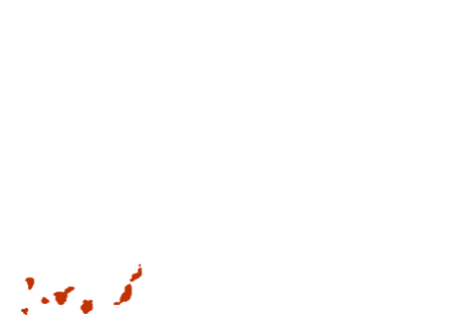
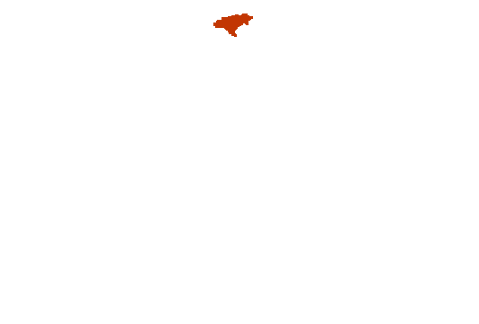
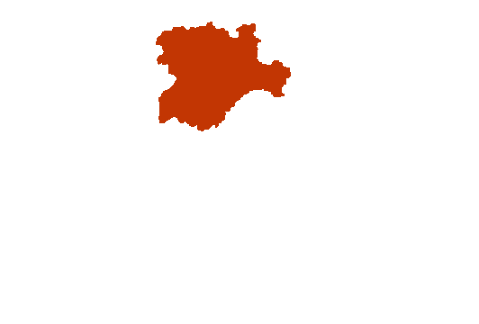
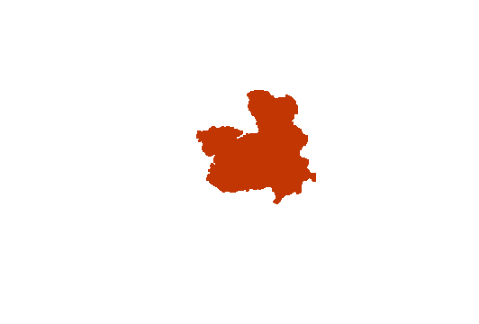
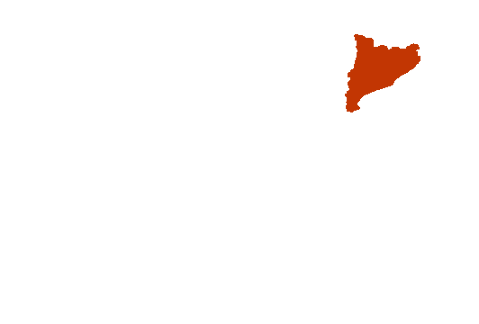
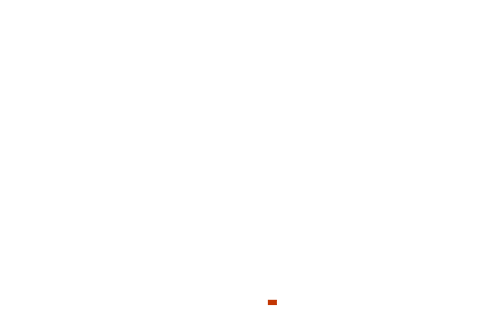
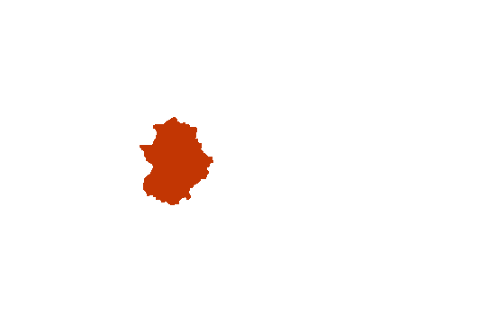


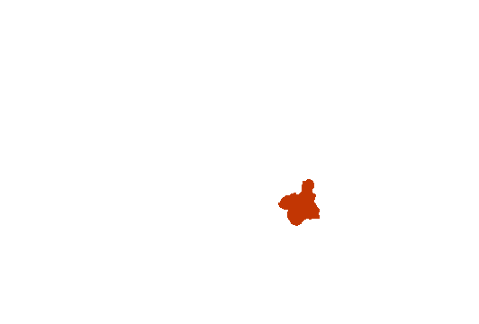
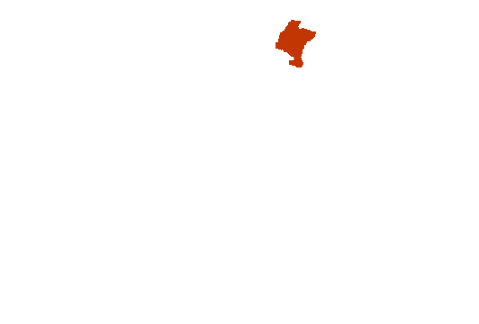
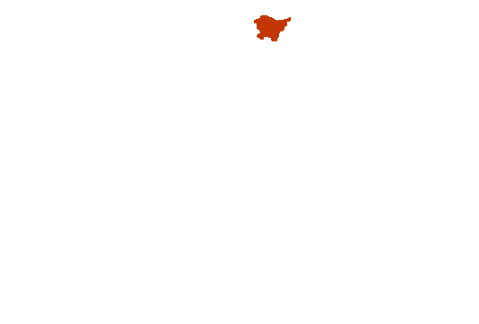
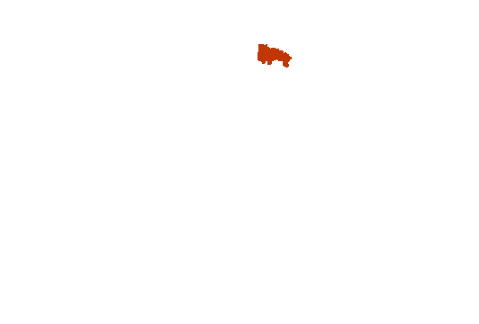
Andalucía Aragón Asturias, Principado de Balears, Illes Canarias Cantabria Castilla y León Castilla-La Mancha Cataluña Ciudad de Ceuta Ciudad de Melilla Comunitat Valenciana Extremadura Galicia Madrid, Comunidad de Murcia, Región de Navarra, Comunidad Foral de País Vasco Rioja, La
Information from local authorities
Municipal councils have rules on the management of non-household waste.
Access to the Local Government Map![]() to select the relevant municipality.
to select the relevant municipality.
Legal and/or technical references
-
Waste regulations section – Ministry for Ecological Transition and the Demographic Challenge website.

-
Directive 2008/98/EC of the European Parliament and of the Council of 19 November 2008 on waste and repealing certain Directives

-
List of wastes: Commission Decision of 3 May 2000 replacing Decision 94/3/EC establishing a list of wastes.

-
Shipments of waste: Regulation (EU) 2024/1157 of the European Parliament and of the Council of 11 April 2024 on shipments of waste, amending Regulations (EU) No 1257/2013 and (EU) 2020/1056 and repealing Regulation (EC) No 1013/2006.

-
Shipments of waste between Autonomous Communities: Royal Decree 553/2020 of 2 June regulating the shipment of waste within the national territory.

-
Law 22/2011 of 28 July on contaminated soil and waste.

-
Used industrial oils: Royal Decree 679/2006 of 2 June regulating the management of waste industrial oils.

-
Plastic bags: Royal Decree 293/2018 of 18 May on reducing the use of plastic bags and creating the Producers Register.

-
Landfilling: Royal Decree 646/2020 of 7 July regulating landfill waste disposal.

-
Regulation (EU) 2025/40 of the European Parliament and of the Council of 19 December 2024 on packaging and packaging waste.

-
Packaging and packaging waste: Royal Decree 1055/2022 of 27 December on packaging and packaging waste.

-
Sewage sludge for agricultural use: Royal Decree 1310/1990 of 29 October regulating the use of sewage sludge in the agricultural sector.

-
Used tyres: Royal Decree 1619/2005 of 30 December on the management of used tyres.

-
Batteries and accumulators: Royal Decree 106/2008 of 1 February on batteries and accumulators and the environmental management of their waste.

-
Regulation (EU) 2023/1542 of the European Parliament and of the Council of 12 July 2023 concerning batteries and waste batteries, amending Directive 2008/98/EC and Regulation (EU) 2019/1020 and repealing Directive 2006/66/EC (Text with EEA relevance)

-
Waste electrical and electronic equipment: Royal Decree 110/2015 of 20 February on waste electrical and electronic equipment.

-
Restricting the use of substances in electrical and electronic equipment: Royal Decree 219/2013 of 22 March on restricting the use of certain hazardous substances in electrical and electronic equipment.

-
Construction and demolition waste: Royal Decree 105/2008 of 1 February regulating the production and management of construction and demolition waste.

-
Vehicles at the end of their useful life: Royal Decree 20/2017 of 20 January on end-of-life vehicles.

-
Financial guarantees: Royal Decree 208/2022 of 22 March on financial guarantees concerning waste

-
Tobacco products with filters and filters marketed for use with single-use tobacco products containing plastic: Royal Decree 1093/2024 of 22 October regulating the handling of waste from tobacco products with filters and single-use filters containing plastics marketed for use with tobacco products.






